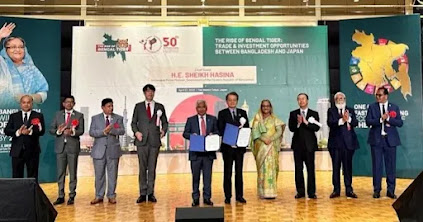Beximco Group completed two projects financed by its Shariah-compliant bond fund—Green-Sukuk Al Istisna’a.Teesta Solar Limited’s power plant with a capacity of 200 MW utilised the full Tk1,881.80 crore allocated from the Sukuk Fund and successfully started commercial operations on January 8, 2023. Meanwhile, the textile division’s expansion project, which is the second project, utilised the full Tk 805.90 crore allocated from the fund and has successfully commissioned the textile machinery arranged through financing and refinancing, as per a Dhaka Stock Exchange (DSE) filing. It has enhanced the textile division’s capacity in spinning, denim, yarn dyeing, knitting, printing, and washing units, as per the filling.
Beximco also informed the same day its third project – Korotoa Solar Limited’s 30 MW Solar Project located at Tetulia in Panchagarh – is currently under construction and will fully be operational by June 2024.
On July 8, 2021, the Bangladesh Securities and Exchange Commission (BSEC) gave approval to Beximco for issuing a Tk 3,000 crore Shariah-compliant green sukuk, and the sukuk made its debut on January 13 last year. Meanwhile, the trustee of the Beximco Green Sukuk Al Istisna'a approved the payment of 5.55 per cent dividend on the Sukuk's face value for the first half of its second year. Investment Corporation of Bangladesh (ICB) is the trustee of the Sukuk.
Beximco Group paid a 30 per cent cash dividend to its shareholders for the financial year ended in June 2022. The listed company’s earnings per share (EPS) stood at Tk14.32 for FY22 against Tk7.53 for the previous fiscal.


.jpg)